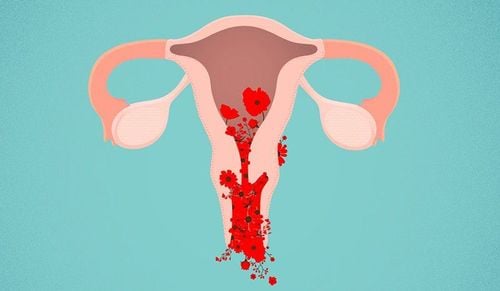This article has been reviewed by obstetrics and gynecology specialists at Vinmec Hai Phong International Hospital.
An increase in body temperature during ovulation is a normal physiological phenomenon in women. Basal body temperature remains elevated after ovulation and before menstruation begins.
1. Increased Body Temperature During Ovulation and Before Menstruation
For healthy women with normal ovulation, basal body temperature (BBT) can be divided into two phases: the low-temperature phase and the high-temperature phase. BBT cycles continuously and reflects a woman's physiological status.
- Low-Temperature Phase: At the start of the menstrual cycle, body temperature decreases and remains low for about 2 weeks.
- High-Temperature Phase: During ovulation, body temperature rises and remains elevated until the next menstrual cycle begins. This explains why women often feel an increase in body temperature before menstruation.
If the high-temperature phase persists for more than two weeks, it may indicate pregnancy. Conversely, if body temperature remains low throughout the menstrual cycle, ovulation likely did not occur. Additionally, a woman’s basal body temperature can fluctuate depending on diet and lifestyle habits.
Changes in body temperature during the menstrual cycle can cause both physical and emotional changes. The table below outlines the variation in body temperature throughout the menstrual cycle.
2. Body Temperature Changes as a Premenstrual Symptom
Changes in body temperature are part of Premenstrual Syndrome (PMS), a condition affecting most women of reproductive age. PMS includes both physical and emotional symptoms, such as:
- Physical Symptoms: Acne, breast tenderness, fatigue, insomnia, bloating, constipation or diarrhea, headaches, back pain, sore throat, muscle and joint pain, runny nose, loss of appetite or overeating, and a feeling of increased body temperature (similar to fever).
- Emotional Symptoms: Difficulty concentrating, memory problems, tension, irritability, mood swings, crying easily, anxiety, and depression.
Although this is a normal physiological phenomenon, PMS can cause significant discomfort in some women. Symptoms such as elevated body temperature and severe cramps can lead to fainting episodes or distress.

3. Management of Premenstrual Syndrome
PMS symptoms, including increased body temperature during ovulation, are heavily influenced by diet and lifestyle. Simple adjustments, such as adopting a healthier lifestyle and daily supplementation of vitamins C, D, E, and folic acid, can alleviate severe symptoms. Key recommendations include:
- Regular physical activity
- A balanced diet rich in fresh vegetables, legumes, and fruits
- Avoiding salty, spicy, sugary foods, carbonated drinks, caffeine, alcohol, and stimulants
- Sleeping at least 8 hours per day and managing stress
- Drinking adequate water and avoiding strenuous physical activities during menstruation
If symptoms persist despite lifestyle changes, consulting a gynecologist is advised. Medical treatments, such as medications, can effectively alleviate most PMS symptoms.
Basic Gynecological Screening Package at Vinmec International applies to women experiencing:
- Abnormal vaginal bleeding
- Menstrual problems, such as prolonged cycles or irregular periods
- Abnormal vaginal discharge (foul odor, unusual color)
- Persistent menstrual pain or genital itching
Services Include:
- Specialized gynecological examination
- Transvaginal ultrasound of the uterus and ovaries
- Bilateral breast ultrasound
- Tests such as: Treponema pallidum rapid test, Chlamydia rapid test, Cervical and vaginal cytology (Pap smear), Vaginal fluid bacterial staining, HPV genotype PCR (automated system)
- Complete urinalysis
With a team of highly skilled and dedicated doctors, modern diagnostic equipment, and effective treatment options, Vinmec International Hospital ensures early detection of inflammatory conditions and cost-effective treatment. The screening program also facilitates early detection of gynecological cancers (e.g., cervical cancer).
For more health, nutrition, and beauty tips, visit Vinmec International General Hospital to safeguard the health of yourself and your loved ones.
Please dial HOTLINE for more information or register for an appointment HERE. Download MyVinmec app to make appointments faster and to manage your bookings easily.













